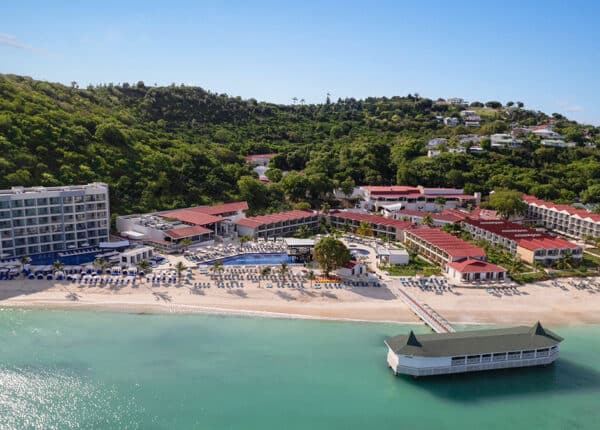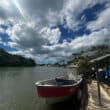Dennis Chung: Jamaica’s Survival Under the International Monetary Fund
By Dennis Chung
CJ Contributor
AT THE END of December 2012, when it became clear no International Monetary Fund (IMF) deal was coming, I wrote an article titled “Jamaica without the IMF,” as I felt that it was important to think about Jamaica’s options.
This was because not having a deal by the end of 2012 meant there were harsher measures than expected that would be coming.
Many persons said that there was no option but the IMF, and that Jamaica must get an IMF deal. Well, we did and some of the same persons who were saying there was no other option are now criticizing the tax package and the National Housing Trust (NHT) drawdown. I can never understand what some of us want.
So here we are facing IMF terms that obviously will cause further contraction in the economy, on top of the devaluation we continue to see. A point here is that devaluation, as both Seaga and Davies recognized, does mostly harm to Jamaica and little good. This is because most of our export content is from imports, and so any devaluation only makes the cost of our exports more expensive, and will either result in increased export prices or shutting down of businesses which can’t recover costs. How we deal with that is for another discussion, as what I want to focus on today is how the individual can deal with the current environment.
There are certain measures individuals can take to protect themselves, which in the short to medium term will result in a reduction in economic activity and fiscal revenues, but at least will protect against the terms of the IMF agreement.
To be clear, there are some people who are going to be affected more than others because of situations like debt levels (especially personal debt such as credit cards and car loans) and if they have not been working for a while. However, I believe that everyone can protect themselves to some degree against the coming environment if you have the commitment, discipline, and work with someone who can help. After all, when you are sick you go to a doctor, why not seek financial expertise when you have financial issues?
The issues I will mention come from discussions I have been having on Facebook, and out of which a group has been started, to discuss specific issues that can help people cope with the economic conditions while also improving your health. In fact, the main motivation was health reasons but also results in protection against the economic environment.
The objective is that you want to maintain your standard of living as much as possible by reorganizing your expenditure and habits to maximize the utility of your resources. The first thing I say to people is if you do not have consumption debt, then do not acquire it, and if you have it, then get out of it as quickly as possible. So the credit card and car loan you should shy away from.
You also should seek to improve your income, as just cutting back alone (as in the austerity measures) will only result in a decline in living standards. So a real-life example is someone I recently coached who was an office helper in an organization. Before her contract came to an end I told her, and her colleagues, to look at starting their own business. The better-paid and more formally educated ones chose to go and work for someone else. She said to me that she wanted to start her own business but had no capital. So I asked her what she liked to do and she said food. So I told her to go bake a cake and come back and sell slices to the people at the office. Within a month she was selling a few cakes and today her customer base has expanded, she is building her house, is thinking of employing someone, is making more money than when she was working, and is enjoying it much more.
The other thing to do is examine your consumption and see how you can be more efficient at it — For me this includes improving health, which also means less future medical expenses.
So there are two things that I have done that have improved my quality of life and at the same time reduced my consumption expenditure (although required some upfront investment) and put more money to savings.
The first is to go with renewable energy at home. I have been using solar for the last three years, and today generate 80 per cent of my energy needs. A good problem I face is that for about four hours I generate more energy than I need and because I have a charge controller on the system it doesn’t use the maximum it can. But what it also means is that within two years I would have paid back for the cost of the system and have another 10 to 20 years of use before replacement, and I never suffer during Jamaica Public Service outages or cost increases, from fuel prices or devaluation. Today my water and light bills are approximately the same.
The other thing I do for health purposes primarily, but ends up saving me money also, is to grow my own herbs, vegetables, and fruits. Today what I grow accounts for 10 per cent of my food consumption and the plan is to move it to 70 per cent in six months, which is achievable because I am practically vegetarian. The most important thing is that it is healthier, as it is fresher and I know it is organic, but secondly, it is much more convenient to just go outside and pick what you want to eat.
Everyone can do this to some degree, and it is a much healthier alternative. Can you imagine if enough people adopted this approach to reduce unnecessary consumption and create their own energy and food consumption, the amount of foreign exchange savings the country would have?
It is important that we start to think this way, as there has not been presented as yet any economic agenda that is going to increase GDP and spending power of the masses. What we need to do, therefore, is start to take our own individual actions to cope.
These actions will no doubt decrease economic activity, and reduce taxes from consumption and income, but at least they are the best way for everyone to contribute to the country’s balance of payment solution, while improving their own circumstance.
Dennis Chung is a chartered accountant and is currently Vice President of the Institute of Chartered Accountants of Jamaica. He has written two books: Charting Jamaica’s Economic and Social Development – 2009; and Achieving Life’s Equilibrium – balancing health, wealth, and happiness for optimal living – 2012. Both books are available at Amazon in both digital and paperback format. His blog isdcjottings.blogspot.com. He can be reached at drachung@gmail.com.







